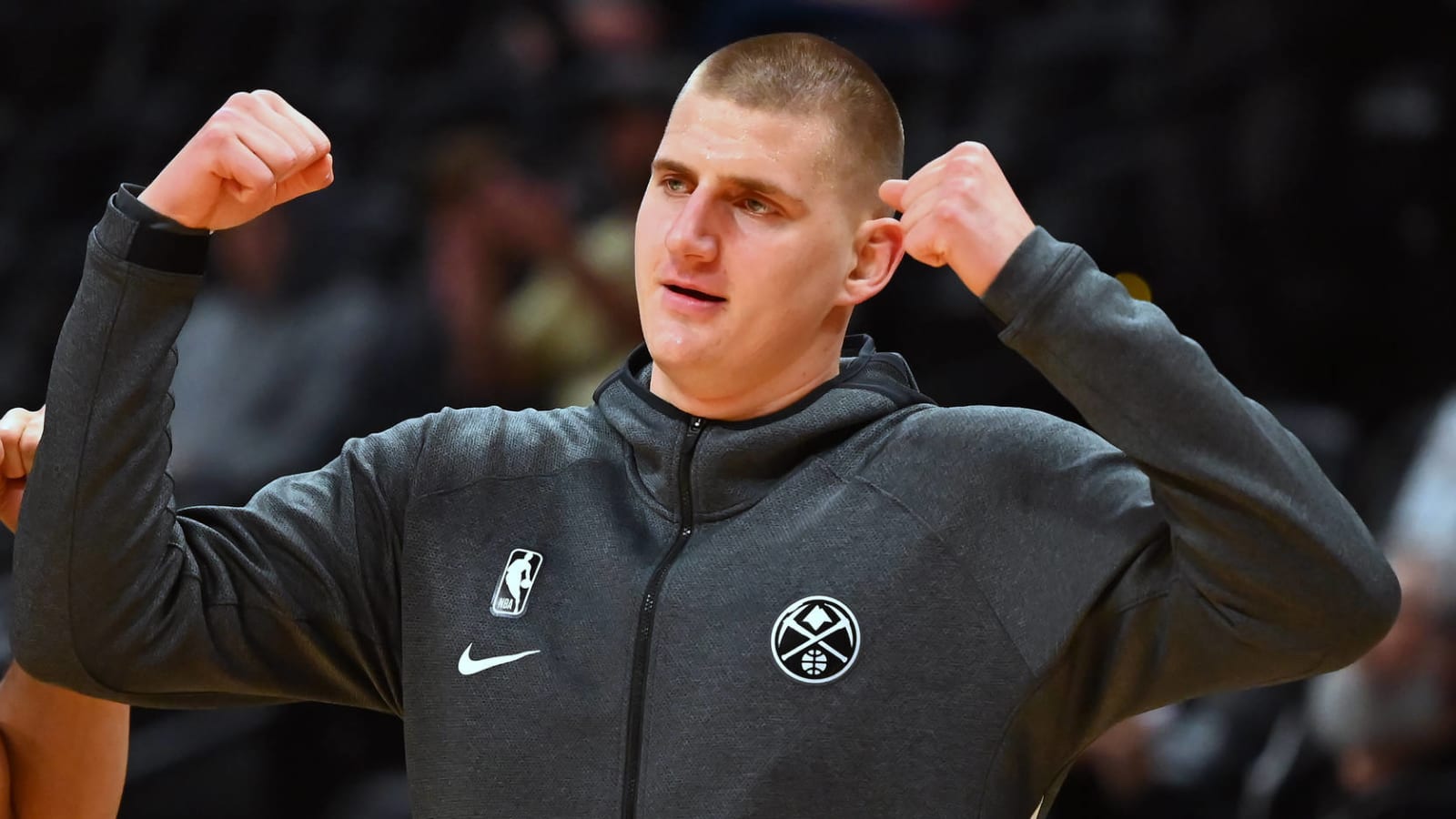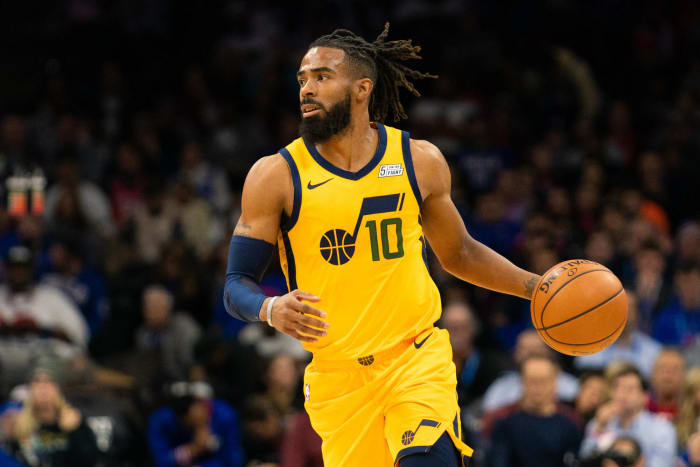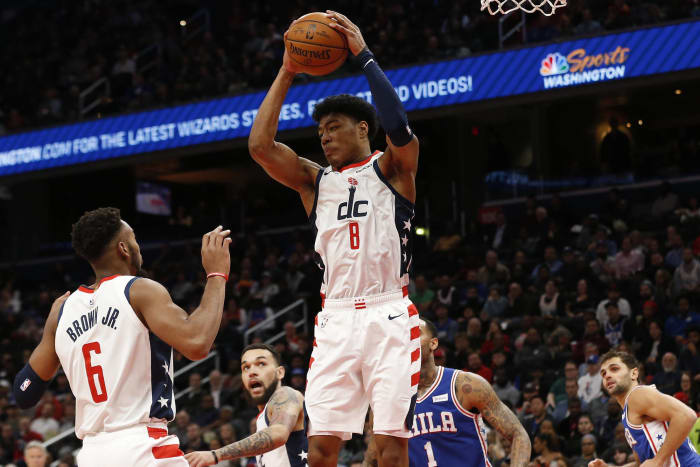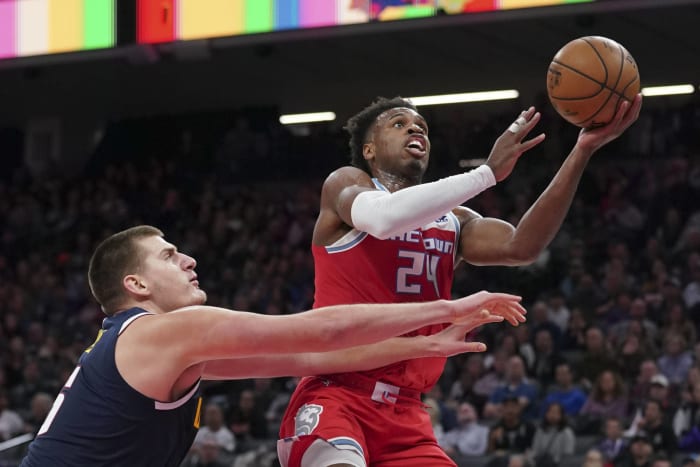
Mighty or mirage? Assessing starts by Suns, Jazz, Nets, Nuggets, others
About 20 games into the season, we usually get a feel for which NBA teams are for real and which are pretenders. Yet every season there are always a handful of teams that are difficult to get a read on. Some are better than their current record indicates; other have simply ridden some good fortune to a comfy spot in the standings. Are these six teams fooling us?
PHOENIX SUNS (10-12)
The problem number: 345
Phoenix, the butt of jokes for a decade, went 5-2 out of the gates, with statement wins against the upper-echelon Clippers and 76ers. It seemed like we were headed for a surprising plot twist when it came to the direction of the league’s most dysfunctional franchise.
But as November played out, the Suns began to fade, with the team losing eight of its final 11 games and dropping below .500. Same old Suns, right? Not so fast. Phoenix’s recent slide wasn’t simply a bad team cooling off after a hot start. Blame bad injury luck and a pretty big (literally) absence.
Aron Baynes, the Suns' 6-foot-10, 260-pound center, is something of a journeyman, but he's massively important to the team. A calf injury has limited him to one game since Nov. 18, a pretty big deal considering Baynes has the team's second-best plus/minus mark, behind Ricky Rubio. In all, Baynes has played in 13 of the team’s 22 games.
The injury woes plaguing Baynes are compounded by the fact DeAndre Ayton, last year’s first overall pick, will miss four more games for violating the league’s banned substance policy. Baynes and Ayton were supposed to anchor center for the Suns but instead have played just 345 minutes combined. Couple that with absences from Rubio, a godsend for a team that had massive point guard issues last season, and the Suns have missed arguably three of their four most impactful players for a decent chunk of the young season.
When Baynes gets healthy and Ayton returns from suspension, the Suns will get a nice boost. This team isn't a mirage.

UTAH JAZZ (13-10)
The problem number: 36.9%
Many thought Utah's acquisition of Mike Conley was the trade of the off-season. After all, it’s hard not to get optimistic when a 50-win team trades for an All-Star-caliber point guard (although he never has been named to the All-Star team). And at 32, Conley isn’t a washed-up veteran but a player still very much in the tail end of his prime.
Yet in the early going, Conley has struggled. His field-goal percentage has plummeted from 43.9 percent in 2018-19 to 36.9 percent so far this season. Although he still is a mostly positive influence on the Utah offense, he isn’t the version of Conley the Jazz expected.
The good news is Conley’s shot-making troubles seem to stem solely from one area: his finishing. Over the past five seasons, Conley has never shot less than 52.9 percent on shots inside five feet. This season, he’s only converting 44 percent of such shots. There’s a good bet that this start from Conley is just a fluke, not some sign of serious decline. And once their new point guard’s shots around the rim start going in, expect Utah to start going up the conference standings.

WASHINGTON WIZARDS (7-15)
The problem number: 122.4
Drafted ninth overall, Gonzaga product Rui Hachimura was supposed to inject a much-needed dose of youth and potential into a stale Wizards roster. Unfortunately for Washington, the only thing the 6-foot-8 rookie forward has livened is opposing offenses.
Despite boasting the league’s fourth-best offense, the Wizards are eight games below .500. It doesn’t take an actual wizard to conjure up an answer why Washington can be this bad while being so good at putting the ball in the basket. To say the team’s defense is abysmal might be an understatement.
Washington is last in defensive efficiency, giving up 116.4 points per 100 possessions. At the core of that is two things: a little bit of bad luck when it comes to opponents converting three-pointers and the impact (or lack of it) of the team’s prized rookie. When Hachimura is on the floor, the Wizards' defense gets much worse (122.4 points per 100 possessions!).
Coach Scott Brooks may have to cut Hachimura's minutes -- at 651, he's second on the team -- and thus improve the Wizards' defense enough that its offense can propel Washington up the standings.

BROOKLYN NETS (13-10)
The sleight-of-hand stat: 8 of 10
Before starting international incidents with tweets about Hong Kong, Rockets GM Daryl Morey once caught the NBA’s attention with his take on close games. Though the narrative around the sport was that certain intrinsic qualities helped tilt the scales in favor of certain teams when games got tight late, the math said otherwise. That prompted Morey to point out that good teams don’t win close games, they avoid them.
Brooklyn has clearly not heeded this advice. NBA.com defines a “clutch” situation as a game in which the teams are within five points of each other with five minutes or less to play. For the most part, those situations are coin flips that give neither team much of an advantage. That’s bad news for the Nets given their run over the past 10 games.
Over that stretch, Brooklyn has beaten the Knicks and Cavs by two points, the Nuggets by three and the Celtics by five en route to eight wins. That’s a lot of tight affairs that have tilted in their favor. It’s what has boosted the team’s overall mark to 13-10, a climb above .500 that didn’t seem likely even with a lineup with Kyrie Irving, who has missed significant time with a shoulder injury.
The problem for Brooklyn is it's leading the league with nine of those “clutch” wins. Well over half your win total coming from clutch wins is, simply put, not sustainable. And it looks even worse when you consider that six of those eight Brooklyn wins have come against clubs with losing records. Although it may appear the Nets have found their footing over the past 10 games after a drastic off-season makeover, Brooklyn may slip again soon.

DENVER NUGGETS (14-7)
The sleight-of-hand stat: 102.3
The Nuggets jumped to the top of the West last season thanks to a 10th-ranked defense and a fun, quirky and effective offense that finished seventh in the league. This season, that offense has gone off the rails, dropping from seventh to 20th. Despite the drop-off, Denver still hovers near the top of the West.
The reason? Its new, "suffocating" defense! The Nuggets boast the league’s second-best defense, giving up just 102.3 points per 100 possessions, behind only Milwaukee. Although the offense has slipped, the defense has picked up the slack for Denver to keep pace.
Or maybe not.
Dig a little deeper and the Nuggets defensive surge isn’t some newfound commitment to stopping their opponents. Instead, it looks simply like Denver’s opponents are merely stopping themselves.
Teams are converting just 30.7 percent of their three-point shots against the Nuggets this season. If that mark held up, it would be the lowest figure in the NBA over the past decade, edging the 2011-12 Celtics team that “held” opponents to just 30.8 percent on their attempts from beyond the arc. The number doesn't seem sustainable, meaning Denver will give up more points sooner rather than later.
The other worrying problem for the Nuggets is opponents are not shooting well from the free throw line. Denver is fourth in free throw "defense" to start the season, a number that will likely shift out of the Nuggets' favor as well.
Denver seems to be escaping points in ways that typically don’t hold up over time. Its second-place defense could fall back to the tail end of the top-10 soon. And if it does, the Nuggets could fall in the West.

MINNESOTA TIMBERWOLVES (10-12)
The sleight-of-hand stat: minus-2.3
Given the demise of Golden State and the current malaise affecting perennial playoff teams San Antonio and Portland, Minnesota seems to be in the mix for one of the final playoff spots in the West. The problem for the T-Wolves is that its current record isn’t the best indicator of future results. Look at point differential, which isn't a good sign for Minnesota.
For the season, the Timberwolves are posting a minus-2.3 scoring margin, the mark of a team destined to finish well below .500, not in the playoff hunt. And to make matters worse, that point differential is already boosted positively by a hot streak from one of the team’s key contributors, Andrew Wiggins.
In November, Wiggins went off, scoring 27.1 points per game and shooting 48.3 percent from the field and 39.5 percent from beyond the arc. All three of those marks are well above the highs Wiggins has posted in each category during any full season of his career. In December, Wiggins has come back down to earth and, not coincidentally, Minnesota has lost all four games.
If the Timberwolves need a Herculean effort from one of their main contributors just to be respectable, that’s not a good sign. Unless Wiggins can consistently raise his level of play, Minnesota will slide.
More must-reads:
- The best buzzer-beaters in basketball history
- Underappreciated Clippers, not Lakers, are NBA's best
- Why Mavericks' Luka Doncic is so good, so quickly
Breaking News
Customize Your Newsletter
 +
+
Get the latest news and rumors, customized to your favorite sports and teams. Emailed daily. Always free!

